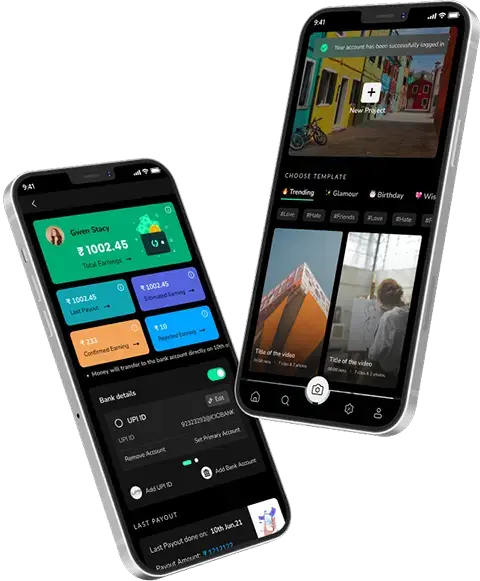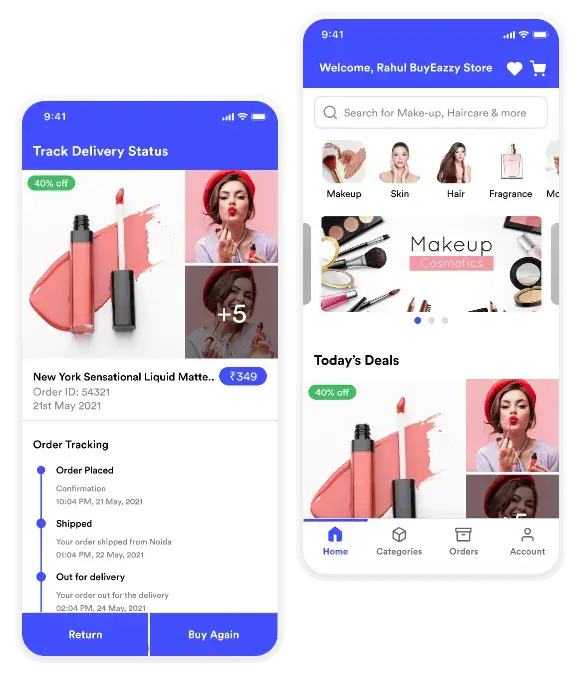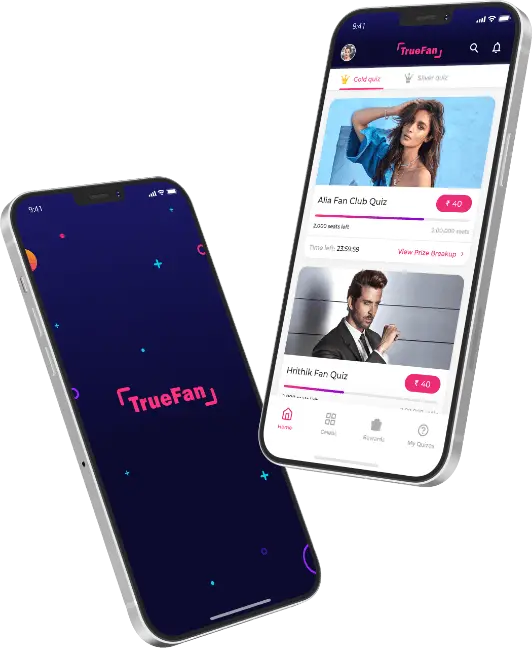Innovations in artificial intelligence continue to shape humanity’s future across nearly every industry. AI is already the main driver of the latest technologies like big-data, robotics, and IoT, and generative AI has further expanded its possibilities and popularity. According to a 2023 IBM survey, 42% of enterprise-scale businesses integrated AI into their operations, and 40% are considering AI for their organizations. In addition, 38% of organizations have implemented generative AI into their workflows, while 42% are considering doing so.
With so many changes coming rapidly, here’s what shifts in AI could mean for various industries and society at large.
Just Read : How Can Creative Industries Benefit From NFT And Blockchain?
What is Generative AI?
A few of the thrilling ways Generative AI is changing the world are entertainment and art. Generative AI models are able to produce realistic and imaginative videos, images, and music. The result is the creation of new types of art and entertainment that weren’t feasible before. For instance, the generative AI model DALL-E 2 can generate images using text. That means you can present an image description to DALL-E 2, and it will create an image that is in line with the description you provide. This has resulted in some stunning artworks, including pictures of undiscovered animals or famous paintings in various styles.

Generative AI can also be utilized to create new kinds of music. The Generative AI design Muse is able to create unique music that is personalized to your individual tastes. That means you now enjoy a music bot that makes new music you can listen to per your personal preferences. These are examples of how generative AI is revolutionizing the world right now:
- Generative AI is currently being utilized to design new styles. This could result in a more customized and sustainable style that can be used worldwide but has a negative impact on the planet.
- In the field of healthcare, generative AI is used to create new medicines and treatments. This could lead to improved and customized healthcare.
- In education, generative AI provides unique learning experiences for students. This will result in more efficient and enjoyable learning.
- It can be employed to design more personalized as well as relevant advertising campaigns. This can lead to more efficient and effective marketing.
Transforming the Business Landscape in the Future of Generative AI

Generative AI is an aspect of artificial intelligence that uses machines to create human-like content or data on which the model wasn’t initially trained. This can include text, images, voice, music, and other forms of content. Generative AI models such as GPT-4 can produce highly real-looking content. The future of Generative AI offers a variety of applications and is becoming more important for various reasons.
- Effectiveness and Efficiency: Generative AI can automate routine tasks, leaving employees to concentrate on more complex problems.
- Personalization: Generative Artificial intelligence involves personalizing content for clients to enhance their experience while improving their user engagement.
- Innovative: Generative Artificial Intelligence, which can create novel content, is an effective instrument to assist businesses in developing innovative ideas and solutions.
- Reduced Cost: The future of AI generative automatizes processes and decreases operating costs.
- Decision Making: Generative AI analyzes huge amounts of data to provide insight.
- Competitive Advantage: Companies that utilize Artificial Intelligence (AI) can offer the most cutting-edge products and services, enhance customer experiences, and maximize efficiency while keeping up-to-date with its potential in the future.
As AI technology develops, its significance and impact in the business world are likely to increase exponentially. Generative AI’s influence will grow in line with this.
Generative AI Use Cases
The excitement over this technology is rapidly spreading across different departments and industries. Many sales and marketing executives took action quickly and used AI in their work processes. The speed and magnitude of generative AI’s capability to create new content and valuable assets is impossible to ignore for any field that relies on producing large volumes of written or created content. Education, healthcare, and insurance are more reluctant because of the compliance and legal requirements they must follow and the lack of knowledge, transparency, and regulations in generative AI. The use cases of AI are mentioned below.

1. Code Generation
Software developers and programmers employ generative AI to create code. Generative AI Consulting Company rely on the power of generative AI to improve difficult coding tasks with greater efficiency. Generative AI is utilized to automatically update codes across multiple platforms. It is also a major factor in identifying code flaws and automating the testing process. It helps ensure the code works as it should and complies with quality standards without requiring lengthy manual testing. Generative AI is extremely useful in rapidly creating various kinds of documentation developers need. This is a reference for tech documentation, user guides, and other materials necessary for software development.
2. Product Designers Use in Design and Development
Generative AI to optimize design ideas at a larger dimension. This technology permits quick evaluations and automated adjustments, significantly streamlining the design process. It aids in optimizing structural design, ensuring that the products are robust and durable, use minimal materials, and can result in substantial cost savings. To achieve the maximum impact, generative design should be incorporated into the entire product process, from the design phase to manufacturing and purchasing. Furthermore, product managers use generative AI to combine users’ feedback, enabling product enhancements directly affected by user requirements and preferences.
Also Read : Investing In Manufacturing Inventory Managment Software Costs And Benefits
3. Marketing and Sales
Generative AI assists marketing campaigns with personalized communications with prospective and current customers via different channels, such as social media, email, and ages. This technology doesn’t just streamline marketing campaigns but also improves the capacity to increase content production without compromising quality. In sales, generative AI improves teams’ performance by providing detailed analytics and insight into customer behavior.
Marketing departments are leveraging this technology to analyze information, identify patterns in consumer behavior, and then create content that connects with their target audience. This often involves recommending news articles as well as best practices that are aligned with the needs of the audience. Generative AI plays a vital function in dynamically identifying and segmenting audiences and identifying high-quality leads, substantially improving the effectiveness of outreach strategies and marketing initiatives.
Also Read : Why Is Test Automation Key For Delivering High Quality Mobile Apps?
Additionally, well-designed instructions and inputs guide the generative models to create innovative content for emails, blogs, social media posts, and websites. Content from the past can be recreated and edited with AI tools. Hire generative AI engineers who can also design customized dynamic AI generators of language that are trained to match the tone and voice of their brand to make sure that the content matches the existing content from the brand more precisely.
4. Operations and Project Management
Generative AI tools can assist project managers by enabling automation within their software platforms. Benefits include automated task and subtask generation, using the historical data of projects to predict timelines and requirements, taking notes, and making risk predictions. Generative AI lets project managers look through and generate instant summaries of the most important documents for business. This application helps users save time and allows them to focus on strategy at a higher level instead of daily business management.
Also Read : Best Business Calender App Development Get Your Own Time Management Expert
5. Video and Graphic Design
The ability of generative AI to produce realistic images and reduce animation time will become the preferred tool for creating videos without the need for actors, as well as video equipment or editing skills. AI video generators will quickly create videos in the languages they require to meet the needs of every region. It could be a while before generative AI-generated videos can effectively replace human directors and actors, but companies are already testing the technology. People also use image generators to edit photos of their personal lives and create professional-looking corporate headshots for business on Slack and LinkedIn.
6. Management of Employees and Business Customer Service
Artificial Intelligence (AI) can be employed in all call centers. It makes the documentation needed accessible and searchable and puts case-resolving data in the hands of customer service agents. Generative AI Integration Services can significantly improve the interaction between employees and managers. They can organize performance reviews, providing employees and managers with an improved framework for growth and feedback. In addition, generative conversations on AI portals can offer employees feedback and pinpoint areas of improvement without involving management.
7. Customer Assistance and Customer Service
While chatbots remain popular, companies have begun integrating technology to alter the way chatbots operate. Generative AI advances aid in the development of more creative chatbots that can engage in naturally fluid conversations, allowing them to comprehend the context and nuance the way a human agent can. AI-powered chatbots can access and process huge quantities of data to respond accurately to inquiries from customers and agents.
Unlike human agents, AI chatbots can answer customer questions during all hours to ensure users have a seamless experience all day or night. The transition from traditional chatbots to AI-powered generative companions is early, but the potential is unquestionable. As technology advances, we can expect more complex and engaging AI interactions to blur the boundaries between human and virtual assistance.
Also Read : Navigating The Impact Of AI Powered Apps On Ecommerce Stores in UK
8. Risk Management and Fraud Detection
Generative AI tools can swiftly analyze and synthesize massive amounts of information to detect patterns or irregularities. Claims adjusters and underwriters use Generative AI tools to search policies and claims to improve client results. Generative AI can produce customized summaries and reports suited to client’s requirements and present pertinent data directly to underwriters, adjusters, and risk managers, saving time and reducing decision-making. However, human judgment and supervision are still required to make final decisions and ensure fair outcomes.
9. Generating Synthetic Data to Train and Test
Enterprises can use AI to create synthetic data to train AI models, test new products, and simulate real-world scenarios. This reduces the need for the actual data that may be sensitive and should be kept private or come from a costly external source of data. Don’t be held back by the constraints of collecting and preparing data from the real world; it is possible to accelerate the development process. With the availability of artificial data sets, businesses can quickly refine AI models, try out new features, and bring products to market quickly.
Also Read : AI’s Impect On Efficiency Risk Managment And Insurance Software Development
Emerging Trends in Generative AI
The future of generative AI is evolving beyond the big tech world and research labs. We’re witnessing the emergence of open-source platforms that make this technology accessible to generative AI development company. Researchers are continuously trying to increase the efficiency of the generative models. This means that they can be trained using smaller amounts of data and smaller hardware, which makes them less expensive and more practical for use in real-world situations. There is a trend towards smaller models with similar or superior capabilities to those with larger ones.

As generative AI grows more efficient, it’s becoming more concerned regarding biases that could be problematic. The trend is the creation of methods to help make these models more transparent. This includes explaining how they come up with their results and reducing errors in the training data.
1. From Chatbots to Content and Beyond
Natural Language Processing (NLP) is the basis for chatbots that can comprehend complex customer queries and the nuances of natural language and provide precise and personalized assistance for the future of artificial intelligence (AI). Chatbots powered by NLP function around all day hours, reducing lengthy wait times and providing immediate support. NLP analyzes customer information and the history of communication to personalize the user experience. Imagine a chatbot that remembers your previous inquiries and preferences and provides proactive support.
NLP can be utilized to develop writing assistants that create different types of content. The ability to personalize content based on the preferences and demographics of the audience lets businesses tailor the content on their websites, marketing messages, and news articles to appeal to particular groups of people. NLP advances in the near future of AI, allowing generative AI to seamlessly translate content between languages and make information available to an international audience.
Also Read : How Does An Artificial Intelligence App Add Great Potential To Your Business?
NLP-powered tutors customize learning experiences and give instant feedback. NLP examines medical records and helps facilitate communications between doctors and patients. It also converts speech into text and translates sign language. These advances promise a future in which technology is able to understand and communicate with humans in increasingly complex ways.
2. Augmenting Decision Making
Generative AI shifts through vast amounts of data and can spot patterns and connections that are invisible to the naked eye. This results in exact predictive analytics that anticipate the future of market changes in market trends, market shifts, and the risk potential. Generative AI generates advanced simulations of the potential outcomes. These simulations predict outcomes using different assumptions, which allows businesses to investigate “what if” scenarios before investing resources.
Also Read : The Impect Of Augmented Reality AR in Marketing Boosting Consumer Angagement
AI is generative, generating objective insights based on data. It helps decision-makers avoid prejudices and concentrate on the most important aspects, resulting in more secure and profitable business operations. Imagine a CEO who is considering an acquisition having access to an AI analysis that highlights potential market overlaps and financial synergies. In the near future, intelligent AI with advanced decision-making capabilities isn’t just for large companies. AI applications are becoming more widely available, which allows enterprises of any size to use strategic and predictive analytics as well as strategic simulations.
3. Generative AI and the Era of Hyper-Personalization
The future of generative AI creates profiles that anticipate your ever-changing desires and needs by analyzing your social media activities, browsing habits, and fitness tracker information. Generative AI can design a complete range of products that meet particular preferences and micro-trends, removing the one-size-fits-all model. It doesn’t only recommend products; it constantly enhances them based on the latest feedback from customers. Smart Home systems learn your preferences regarding temperature and lighting and then automate changing them throughout the day to ensure the best comfort.
Also Read : The Comprehensive Guide To Pill Reminder And Medication Tracker Mobile Apps
The future of AI is generative AI, which provides complete experiences customized to preferences. When you make a reservation for a trip, AI creates an itinerary that combines historic places you’re interested in with trendy eateries frequented by those who have similar tastes. Naturally, with such power comes a great responsibility. Because AI customizes customer experiences precisely, it’s essential to keep the user in complete control. It’s essential to be able to define the boundaries of how your data is used and also adjust the level of personalization that you would like.
Also Read : Meet AI How To Boost Sales in Retail And Enhance Customer Satification
4. Balance of Progress and Responsibility
Generative AI algorithms can be as accurate in the information they are trained on. Incorrect data can lead to biased algorithms. Imagine an AI recruitment tool that perpetuates gender inequalities by favoring male applicants due to historical hiring patterns. Ethics-based frameworks need to ensure that the data set is diverse and continuously monitored for biases and the potential of AI that is generative.
The “Black Box” problem occurs when opaque AI outputs undermine transparency and trust. Ethics-based AI requires transparency in making decisions that allow humans to comprehend the logic of AI outputs. The huge amount of data needed to generate AI training poses privacy issues. If all the information you have about your life is fed to an AI, it could be used to alter your behavior. A robust data governance requires explicit user consent and secure storage methods.
Also Read : Should You Be Worried About App Privacy?
Future generative AI must enhance human capabilities and not take over. A moral AI integration requires human-controlled mechanisms that allow for human review of key decisions and the ability to rescind AI recommendations when needed.
Conclusion

Generative AI is revolutionizing our world in numerous ways—increasing creativity and content production while revolutionizing the healthcare landscape, breaking down communication barriers and personalizing education, conserving artwork, and aiding conservation initiatives while streamlining business processes. As it develops further, it promises new opportunities and industry transformation.
However, we must consider generative AI with an eye toward ethics and responsible use to ensure it can contribute positively to society. Its potential will no doubt continue to transform and shape the way in which our world functions in exciting ways in the coming decades. If you are also willing to integrate Generative AI with your app then you can collaborate with the best AI app development company.
Techugo stands out as an ideal partner for integrating Generative AI into your app. With a proven track record of delivering cutting-edge AI solutions, Techugo’s team of experienced developers and AI experts possess the skills and knowledge to harness the power of Generative AI effectively. Their deep understanding of the technology allows them to tailor solutions that align with your specific business goals and objectives. By collaborating with Techugo, you can leverage the transformative potential of Generative AI to create innovative and impactful applications with a success-driven path.
Get In touch with us to discuss your project with us and grab the benefits of Generative AI.
Post Views: 1,332




 SA
SA
 KW
KW
 IE
IE AU
AU UAE
UAE UK
UK USA
USA
 CA
CA DE
DE
 QA
QA ZA
ZA
 BH
BH NL
NL
 MU
MU FR
FR






























